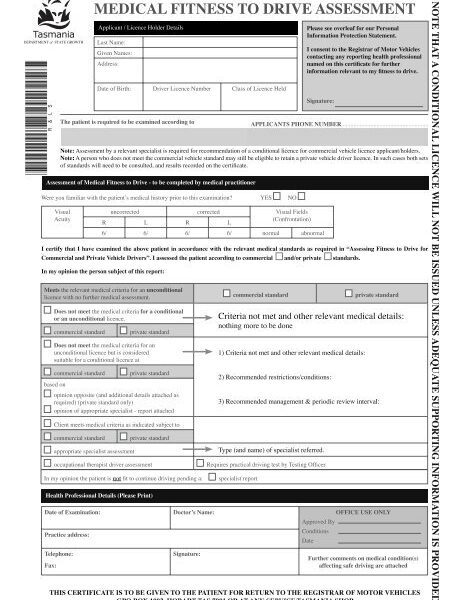Introduction
A fitness to drive medical assessment is a medical evaluation that looks at a person’s ability to safely operate a motor vehicle. The evaluation can be done by a doctor, physician assistant, or nurse practitioner. The assessment includes a physical examination, driving test, and neurological exam. A FtDMA is typically used in cases where the driver has been convicted of a traffic offense, has had their license suspended or revoked, or has a history of driving under the influence. It also reviews the driver’s range of motion, dexterity, balance, coordination, vision, hearing, and reflexes. In order to qualify for the fitness to drive assessment, applicants must provide information about any health conditions that may affect their ability to operate a motor vehicle safely.
What are the components of fitness to drive medical assessment?
Medical assessments for those who hold a driver’s license or commercial driver’s license (CDL) are based on the fitness to drive principles. Medical assessments can identify medical conditions that could impair the ability to safely operate a motor vehicle. Drivers who have medically documented conditions that could prevent them from safely operating a motor vehicle may be deemed unfit to drive. There are several factors that contribute to whether a person is considered fit to drive. These include:
- Having no medical conditions that would prohibit them from driving;
- Having only minor medical conditions that do not affect their ability to drive;
- And have no major medical conditions that would require them to stop driving.
- In addition, drivers must also meet certain physical requirements such as being able to reach and operate all controls of their motor vehicle.
What are the benefits of undergoing fitness to drive medical assessment?
When someone suffers from a car accident, they may be taken to the hospital for medical evaluation. If the person has a head injury, they may need to undergo a fitness-to-drive evaluation to ensure that they are capable of driving. Fitness-to-drive evaluations can help to prevent injuries or fatalities in accidents. There are many benefits to undergoing a fitness-to-drive evaluation, including reducing the risks of serious accidents and helping to improve the quality of life.
Medical fitness to drive is an assessment that is used by doctors to determine if a person is fit to drive. The benefits of undergoing fitness to drive medical assessment are many and varied.
- They include ensuring that drivers are safe on the roads,
- Protecting the public from dangerous drivers, and reducing road accidents.
- Additionally, medical fitness to drive assessments can help people with physical or mental health conditions improve their overall health.
- Fitness-to-drive assessments can identify any potential health concerns that may need to be addressed prior to driving.
- A fitness to drive assessment can determine if a person is able to safely operate a motor vehicle.
- A fitness to drive assessment can identify any areas that require improvement.
Conclusion
A fitness to drive medical assessment is a valuable tool for clinicians who work with patients who may be at risk of driving while intoxicated. By taking into account a patient’s medical history and current health, clinicians can provide accurate information to help make an informed decision about whether or not the patient should drive.
